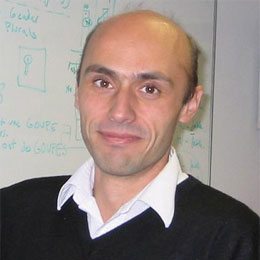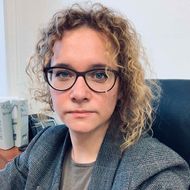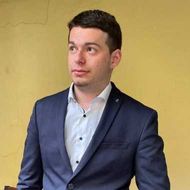- A
- A
- A
- ABC
- ABC
- ABC
- А
- А
- А
- А
- А
- HSE University
- Faculties
- Faculty of Social Sciences
- School of Psychology
- News
- The Latest on Human Infants
-
Education
-
The School
- About
-
Laboratories
-
- The Scientific-Educational Laboratory of Ability Psychology
- Center for Sociocultural Research
- International Laboratory of Positive Psychology of Personality and Motivation
- Laboratory for Cognitive Research
- Cognitive Psychophysiology Laboratory
- Vision Modelling Laboratory
- Laboratory for the Neurobiological Foundations of Cognitive Development
-
- Partners
- Staff Members
- International Cooperation
Phone: +7 (495) 772-95-90 *15366
Email: dekpsy@hse.ru
Address: 101000, Moscow, Armyanskiy per. 4, c2
Address for correspondence: 20 Myasnitskaya Ulitsa Moscow 101000 (School of Psychology)
In press
Popyvanova A., Pomelova E., Bredikhin D. et al.
IEEE, 2024.
Galyapina V. N., Lepshokova Z., Apollonov I. A.
Population and Economics. 2025. Vol. 9. No. 1. P. 25-44.
W. Joseph MacInnes, Zhozhikashvili N., Feurra M.
In bk.: First International Conference, AIiH 2024, Swansea, UK, September 4–6, 2024, Proceedings, Part II. Artificial Intelligence in Healthcare. LNCS, volume 14976. Vol. 14976. Springer, 2024. P. 221-234.
Ivanova M., Germanova K., Petelin D. et al.
Biorxiv. 005140. Cold Spring Harbor Laboratory, 2024
The School promotes cutting-edge research, multidisciplinary studies, education in English. We are increasing the number of courses in English all the time and have started two English-speaking Master’s Programs. Our researchers have access to Eye trackers, TMS, multi-channel EEG, MEG and fMRI techniques.
The School also aims to train psychologists, who can apply their knowledge in the fields of economics, banking, human resources management, organizational development, ecopsychology and team-building.

The Latest on Human Infants
 — What’s the reason for your collaboration with the HSE? How did it start?
— What’s the reason for your collaboration with the HSE? How did it start?
— Initially, I met Boris Gutkin, PhD, in Paris at the ENS who told me about the activities taking place in cognitive science at HSE. I am especially interested in the link with mathematics at HSE and by the possibility of developing new collaborations in the area of computational modeling of cognitive processes.
— What are the current world trends in your field? How does your research reflect them?
— I am heading an ERC funded team interested in bringing together the areas of machine learning and psycholinguistics in order to model the early development of infants. You can find more information on the subject here:www.lscp.net/persons/dupoux/bootphon
— What are you going to present in your lecture in Moscow?
— I will present an overview of the early phases of language acquisition and focus on one area where a modeling approach is currently being conducted using tools of signal processing and automatic speech recognition: the unsupervised acquisition of phonetic categories. We know that during the first year of life, before they are able to talk, infants construct a detailed representation of the phonemes of their native language and lose the ability to distinguish non-native phonemic contrasts (Werker & Tees, 1984). I will show that the only mechanism that has been proposed so far, unsupervised statistical clustering (Maye, Werker and Gerken, 2002), may not focus on the inventory of phonemes, but rather on contextual allophonic units that are smaller than the phoneme (Varadarajan, 2008).
Alternative algorithms will be presented using three sources of information: the statistical distribution of their contexts, the phonetic plausibility of the grouping, and the existence of lexical minimal pairs (Peperkamp et al., 2006; Martin et al, submitted). Each of the three sources of information can be acquired without presupposing the others, but they need to be combined to arrive at good performance. I’m going to present some modeling results and experiments in human infants.
— Are there any definite plans for further cooperation with Russian researchers after the initial lecture?
— Being the head of an interdisciplinary Master's programme in Cognitive Science in Paris, I am very interested in setting up international collaborations and graduate exchanges with Russia.
Anna Chernyakhovskaya, specially for the HSE news service
- About
- About
- Key Figures & Facts
- Sustainability at HSE University
- Faculties & Departments
- International Partnerships
- Faculty & Staff
- HSE Buildings
- Public Enquiries
- Studies
- Admissions
- Programme Catalogue
- Undergraduate
- Graduate
- Exchange Programmes
- Summer Schools
- Semester in Moscow
- Business Internship
-
https://elearning.hse.ru/en/mooc/
Massive Open Online Courses
-
https://www.hse.ru/en/visual/
HSE Site for the Visually Impaired
-
http://5top100.com/
Russian Academic Excellence Project 5-100
- © HSE University 1993–2025 Contacts Copyright Privacy Policy Site Map
- Edit


